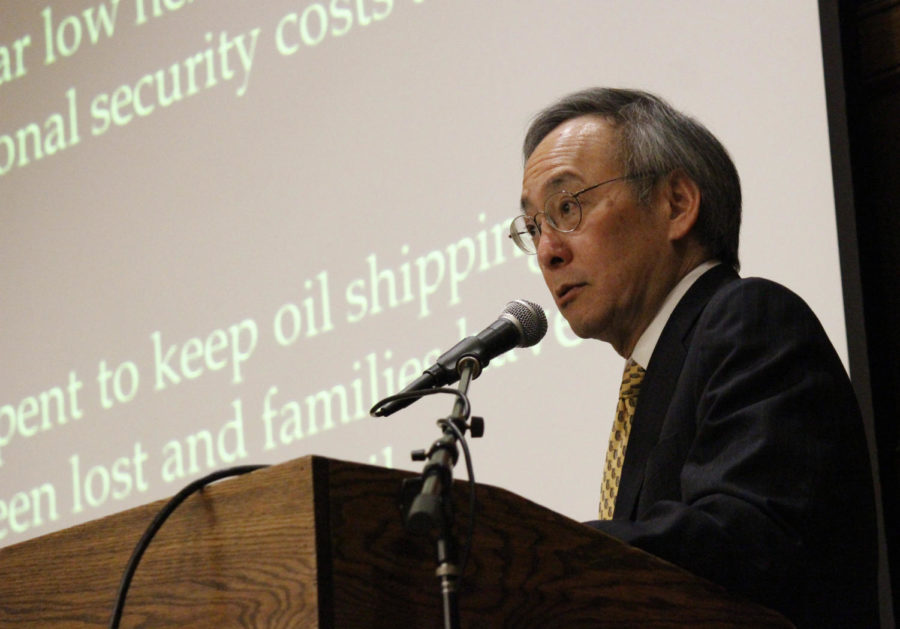Secretary of Energy Steven Chu discusses climate change
February 13, 2013
Unlike most of his colleagues who spent the State of the Union in Washington D.C., one cabinet member opted for visiting Iowa State instead. U.S. Secretary of Energy Dr. Steven Chu visited with members of the ISU community on Tuesday to discuss climate change and the challenges facing the Department of Energy.
“I’m the designated person who is supposed to go away to some undisclosed bunker,” Chu said. “Rather than go to some undisclosed bunker I decided to come here.”
On Feb. 1, Chu announced that he would not serve a second term as Secretary of Energy under Barack Obama. Chu assumed office in early 2009 and plans to maintain his office until a replacement is found. Prior to becoming the Secretary of Energy, Chu won a Nobel Prize in Physics for his research developing a technique to isolate single atoms and molecules at low temperatures.
Chu’s interest in isolating atoms and molecules evolved as he began studying more large, complex particles such as glucose and enzymes. After helping initiate an interdisciplinary program at Stanford University combining biological and medical research, Bio-X, Chu became the director of Lawrence Berkeley National Laboratory in 2004. By 2009, Chu was unanimously confirmed as the 12th Secretary of Energy.
A challenge scientists face in handling climate change is in understanding the nature of climate itself.
“We do not understand what happens in detail over a 10- or 20-year period in climate. It’s very, very complicated stuff,” Chu said. “On a short time scale, we don’t have the predictive power we do on a longer time scale; on a half-a-century to a century time scale, it gets pretty simple.”
Throughout his presentation, Chu presented several graphs that show a trend toward increases in the surface temperature of the earth in previous years. When asked how he deals with climate deniers, Chu said he becomes a scientist and sticks to the data.
“This is more of a smoking gun,” Chu said. “It appears to be fossil fuels; it’s not a natural occurrence.”
Abhishek Vemuri, president of the ISU College Democrats and senior in electrical engineering, had the opportunity to welcome Chu before the lecture. Although he is not attending the State of the Union address, Vemuri believes that some of the ideas the Chu expressed will make an appearance.
“Secretary Chu’s speech might have served as a short preview of what the president will say in his speech tonight regarding climate change and energy policy,” Vemuri said. “Those who attended this afternoon might see some continuity between what the Secretary said and what the president will say.”
To end his lecture, Chu emotionally recited an excerpt from Carl Sagan’s “Pale Blue Dot,” a documentary emphasizing the smallness of the earth compared to the rest of the universe.
“I think we have a moral responsibility,” Chu said. “The most innocent victims in climate change are the poorest who never contribute anything to this and those yet to be born.”

















